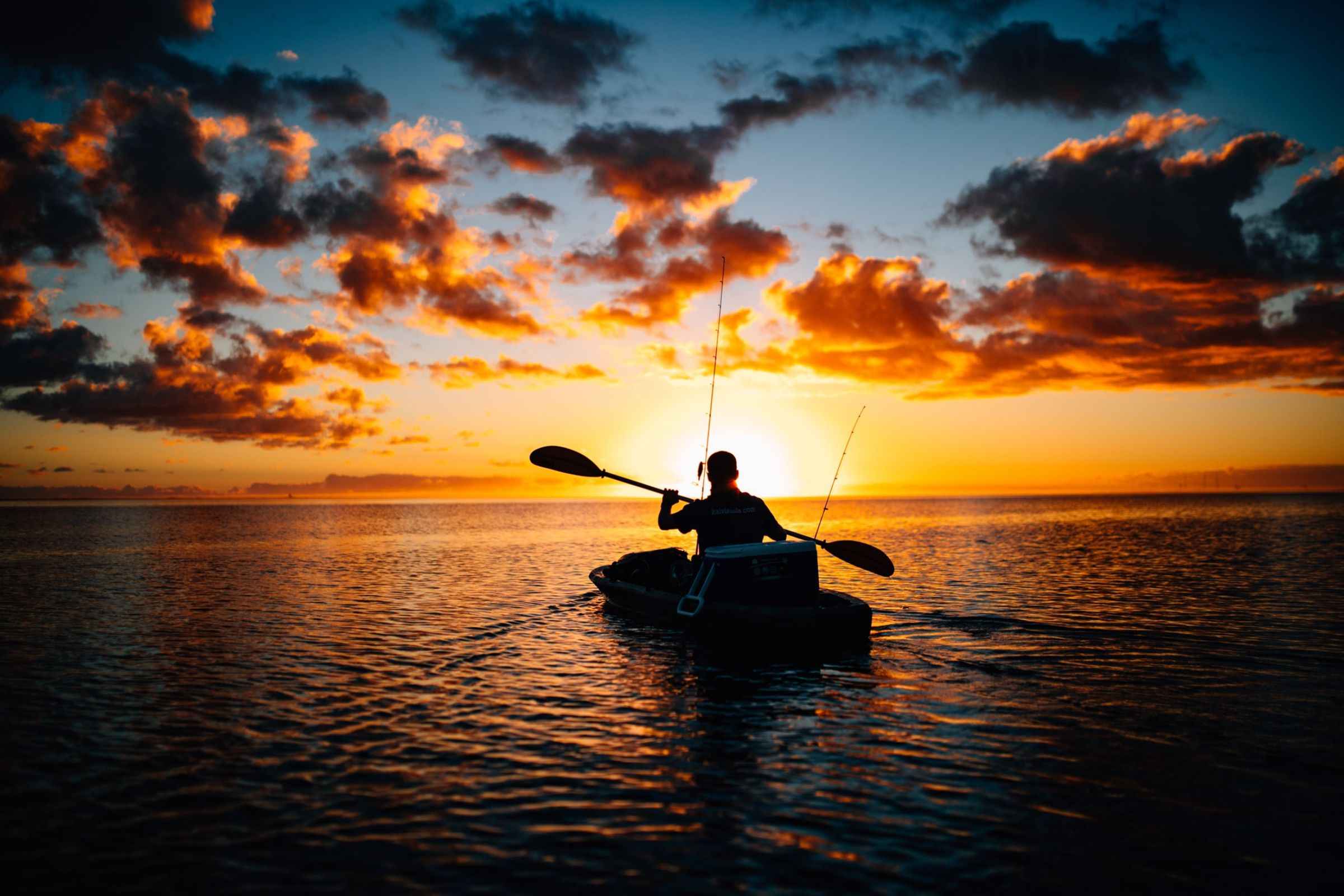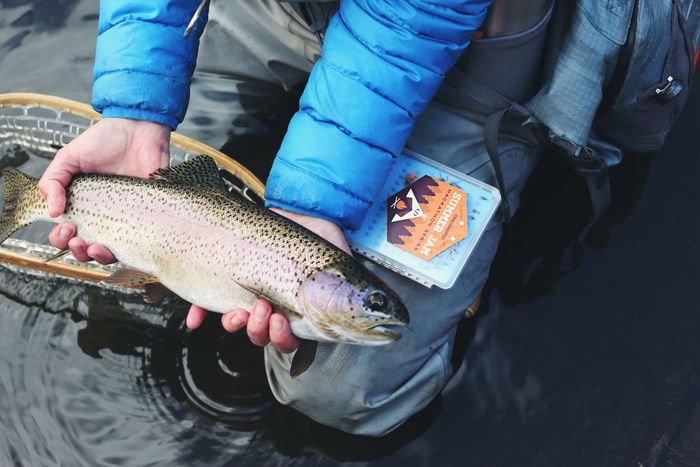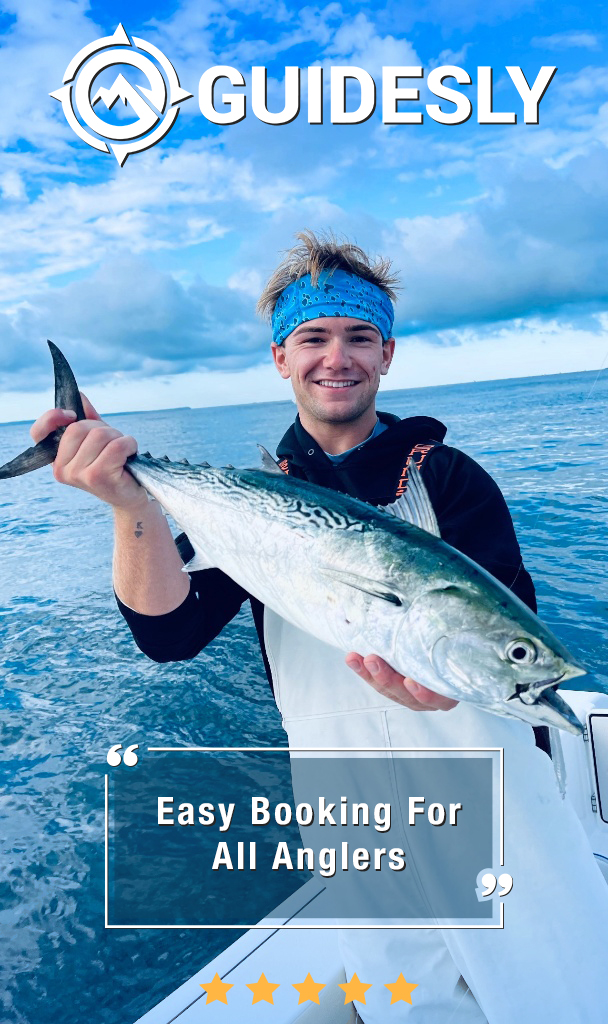Ssshhh, Don’t Tell People Your Fishing Spot
Should you or should you not tell people about your fishing spots? Here are a few reasons why you shouldn't tell anyone about that secret fishing spot.

Should you or should you not tell people about your fishing spots? This is such a sensitive topic among anglers because when it comes right down to it, it isn’t just about the act of fishing itself. It touches upon issues of space, conservation, and who is allowed to partake in this great American tradition. Anglers who are all for sharing fishing spots with fellow anglers are quick to point out that keeping fishing spots secret discourages new anglers from exploring the sport. They are the first to note that these so-called fishing spots are public spaces and are therefore not owned by anybody in particular. These are all good and valid points, but here's what we think.
Reasons You Shouldn’t Tell People Your Fishing Spots

1. Sharing fishing spots may lead to overfishing
As anglers, we are not just hunters; we should also help in conservation efforts. After all, we want to keep fishing for as long as possible, right? However, sharing your fishing spot might reverse any work you’ve done to keep your spot as fishable as possible, year in and year out. If you’ve been careful to practice catch and release, you can’t be sure that everyone will uphold the same practice, especially if they are not as protective of the fishing spot as you are.
2. Sharing fishing spots may lead to overcrowding
For many anglers, fishing is an escape and a meditative act before it is a sport. That’s why secret fishing spots are sacred. But if you share a spot with another person, and that person tells another group of people, before you know it, your meditative space is now no different from a crowded mall where everyone is just keen to get a piece of the action.
And with overcrowding comes a variety of other destructive activities such as littering and basic disrespect to the natural surroundings.

3. Sharing fishing spots will deprive new anglers of the challenge of researching their own spots
If you’ve got a secret fishing spot, you probably or most likely spent years looking for areas, studying and observing each spot you come across, before eventually landing on one. These years in between have made you a better angler and a more persistent and gritty person. It’s part and parcel of becoming a better angler.

So, if naysayers argue that keeping fishing spots secrets will turn off new anglers from fishing, then wouldn’t the opposite be a disservice to them? By giving them information on our secret spots and not challenging them to find one that they can rightfully call their own, we’re spoon-feeding new anglers. And by spoon-feeding them, we’ve deprived them of another crucial facet of angling, which is developing your work ethics through your hard work and persistence.
How Do You Keep Your Fishing Spot a Secret?
1. Make a judgment call
While keeping your fishing spot a secret from a relative stranger is a no-brainer, you would have to be discerning when it comes to your friends and family. After all, you wouldn’t want to destroy your relationships with them over a secret. If you do decide to tell a friend or a family member, make sure that person knows the ins and outs of this fishing spot — not just the catch that’s there, but its conditions, so that they can care for your spot as well as you do.
2. Be careful of the pictures you post online
Pictures can paint a thousand words, including the exact location of your fishing spot. So we know that you want to share and humble-brag about your trophy catch, but if you want to keep your spot relatively unknown, keep the background cropped out of the shot because it’s very easy to tell with the landscape. Similarly, don’t geotag your photos if you’re posting them on social media, as this is another quick way to tell where your exact fishing spot is.
3. If fishing with a guide, ask if you can go back to this spot without him or if you can share it with anybody
This is just basic respect. Wherever your guide takes you, it’s probably a sacred livelihood spot for him. So go ahead and ask. Some of them may be okay with it, but most of them will appreciate your respect for the hard work they've put into discovering and caring for the fishing spot.
So the next time anyone asks you where you fly fish for all the trophy brown trout, walleye, roosterfish, or blue marlin, tell them about techniques they can try instead. Because perhaps, they should learn it isn’t just all about the fishing spot or the water; it’s about your fishing skills as well.




